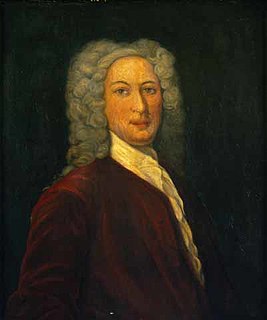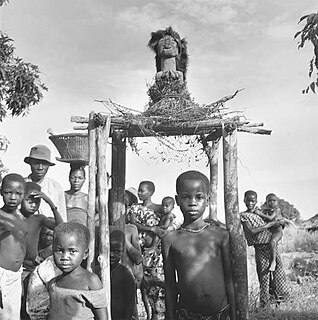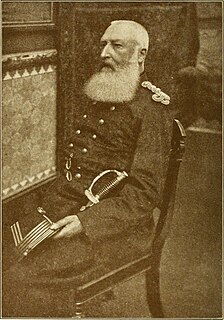Related Research Articles

The Atlantic slave trade, transatlantic slave trade, or Euro-American slave trade involved the transportation by slave traders of various enslaved African people, mainly to the Americas. The slave trade regularly used the triangular trade route and its Middle Passage, and existed from the 16th to the 19th centuries. The vast majority of those who were enslaved and transported in the transatlantic slave trade were people from Central and West Africa, who had been sold by other West Africans to Western European slave traders ; Europeans gathered and imprisoned the enslaved at forts on the African coast and then brought them to the Americas. Except for the Portuguese, European slave traders generally did not participate in the raids because life expectancy for Europeans in sub-Saharan Africa was less than one year during the period of the slave trade. The South Atlantic and Caribbean economies were particularly dependent on labour for the production of sugarcane and other commodities. This was viewed as crucial by those Western European states which, in the late 17th and 18th centuries, were vying with one another to create overseas empires.

The Congo Free State, also known as the Independent State of the Congo, was a large state in Central Africa from 1885 to 1908. It was privately owned by and in a personal union with Leopold II of Belgium. Leopold was able to procure the region by convincing other Eurasian states at the Berlin Conference on Africa that he was involved in humanitarian and philanthropic work and would not tax trade. Via the International Association of the Congo, he was able to lay claim to most of the Congo Basin. On 29 May 1885, after the closure of the Berlin Conference, the king announced that he planned to name his possessions "the Congo Free State", an appellation which was not yet used at the Berlin Conference and which officially replaced "International Association of the Congo" on 1 August 1885. The Congo Free State operated as a separate nation from Belgium, in a personal union with its King, privately controlled by Leopold II, although he never personally visited the state.

Slavery in the United States was the legal institution of human chattel slavery, comprising the enslavement primarily of Africans and African Americans, that existed in the United States of America from its founding in 1776 until the passage of the Thirteenth Amendment in 1865. Slavery was established throughout European colonization in the Americas. From early colonial days, it was practiced in Britain's colonies, including the Thirteen Colonies which formed the United States. Under the law, an enslaved person was treated as property and could be bought, sold, or given away. Slavery lasted in about half of U.S. states until 1865. As an economic system, slavery was largely replaced by sharecropping and convict leasing.

The Mississippi Delta, also known as the Yazoo–Mississippi Delta, or simply the Delta, is the distinctive northwest section of the U.S. state of Mississippi which lies between the Mississippi and Yazoo Rivers. The region has been called "The Most Southern Place on Earth", because of its unique racial, cultural, and economic history. It is 200 miles (320 km) long and 87 miles (140 km) across at its widest point, encompassing about 4,415,000 acres (17,870 km2), or, almost 7,000 square miles of alluvial floodplain. Originally covered in hardwood forest across the bottomlands, it was developed as one of the richest cotton-growing areas in the nation before the American Civil War (1861–1865). The region attracted many speculators who developed land along the riverfronts for cotton plantations; they became wealthy planters dependent on the labor of enslaved African Americans, who composed the vast majority of the population in these counties well before the Civil War, often twice the number of whites.

Philip Livingston, the son of Robert Livingston the Elder, and elder brother of Robert Livingston of Clermont. Philip was the second Lord of Livingston Manor, a merchant, and slave trader.

The Kongo people are a Bantu ethnic group primarily defined as the speakers of Kikongo.
The pre-colonial history of the modern-day Democratic Republic of the Congo encompasses the history of the Congo Basin region up to the establishment of European colonial rule in the era of New Imperialism and particularly the creation of the Congo Free State and its expansion into the interior after 1885. As the modern territorial boundaries of the Democratic Republic of the Congo did not exist in this period, it is inseparable from the wider pre-colonial histories of Central Africa, the Great Lakes and Rift Valley as well as the Atlantic World and Swahili coast.

Bunce Island is an island in the Sierra Leone River. It is situated in Freetown Harbour, the estuary of the Rokel River and Port Loko Creek, about 20 miles upriver from Sierra Leone's capital city Freetown. The island measures about 1,650 feet by 350 feet and houses a castle that was built by the Royal Africa Company in c.1670. Tens of thousands of Africans were shipped from here to the North American colonies of South Carolina and Georgia to be forced into slavery, and are the ancestors of many African Americans of the United States.
Bono State was a trading state created by the Bono people, located in what is now southern Ghana. Bonoman was a medieval Akan kingdom in what is now Bono, Bono East and Ahafo region respectively named after the and Eastern Ivory Coast. It is generally accepted as the origin of the subgroups of the Akan people who migrated out of the state at various times to create new Akan states in search of gold. The gold trade, which started to boom in Bonoman as early in the 12th century, was the genesis of Akan power and wealth in the region, beginning in the Middle Ages.
Jan Vansina was a Belgian historian and anthropologist regarded as an authority on the history of Central Africa, especially of what is now the Democratic Republic of the Congo, Rwanda, and Burundi. He was a major innovator in the historical methodology of oral history. As a professor at the University of Wisconsin–Madison, he taught several generations of students and, according to a biographer, "set the pace in African historical studies from the 1950s into the 1990s."
The ASA Book Prize, also known as the Herskovits Prize, is an annual prize given by the African Studies Association to the best scholarly work on Africa published in English in the previous year and distributed in the United States. The prize was named after Melville Herskovits, one of the founders of the ASA. The title of the prize was changed in 2019 in response to efforts to decolonize African studies.
Philip Dearmond Curtin was a Professor Emeritus of Johns Hopkins University and historian on Africa and the Atlantic slave trade. His most famous work, The Atlantic Slave Trade: A Census (1969) was one of the first estimates of the number of slaves transported across the Atlantic Ocean between the 16th century and 1870, yielding an estimate of 9,566,000 African slaves imported to the Americas. Although subsequent authors have disputed this number, his work remains the most commonly cited. He also wrote about how many Africans were taken and from what location, how many died during the middle passage, how many actually arrived in the Americas, and to what colonies/countries they were imported. Deirdre McCloskey has described Curtin as the "doyen of African economic historians."

Slavery has historically been widespread in Africa. Systems of servitude and slavery were common in parts of Africa in ancient times, as they were in much of the rest of the ancient world. When the trans-Saharan slave trade, Indian Ocean slave trade and Atlantic slave trade began, many of the pre-existing local African slave systems began supplying captives for slave markets outside Africa. Slavery in contemporary Africa is still practised despite it being illegal.
The Bangi language, or Bobangi, is a relative and main lexical source of Lingala spoken in central Africa. Dialects of the language are spoken on both sides of the Ubangi River and Congo River.
David Starr Newbury is the Gwendolen Carter professor of African studies at Smith College, Massachusetts. He received his PhD from the University of Wisconsin–Madison in 1979 for thesis titled Kings and clans on Ijwi Island (Zaire), c. 1780-1840 under the supervision of Jan Vansina. His academic work has three major foci within East and Central Africa. The first was pre-colonial societal transformation in the Kivu Rift Valley. The second was how a Rwandan famine in the late 1920s reinforced colonial rule. The final major focus was the transformation of a hunter-gatherer society in the eastern Democratic Republic of the Congo into an agricultural economy. His recent work has included studies of the historical roots of Central African violence in the late 1990s to present. René Lemarchand states, "No attempt to grasp the historical context of genocide [in Rwanda] can ignore Catherine [sic] and David Newbury’s seminal contributions."

The Zappo Zap were a group of Songye people from the eastern Kasaï region in what today is the Democratic Republic of the Congo. They acted as allies of the Congo Free State authorities, while trading in ivory, rubber and slaves. In 1899 they were sent out by the colonial administration to collect taxes. They massacred many villagers, causing an international outcry.

Bena Makima is a community in the Democratic Republic of the Congo. It is on the right bank of the Kasai River, a few kilometers downstream from the point where the Lulua River enters the Kasai. It is at the highest navigable point on the Kasai in the dry season.

Bantu peoples are the speakers of Bantu languages, comprising several hundred indigenous ethnic groups in Africa, spread over a vast area from Central Africa across the African Great Lakes to Southern Africa.
Joseph Calder Miller was the T. Cary Johnson Jr. professor of history at the University of Virginia from 1972 to 2014. He wrote extensively on the early history of Africa, especially Angola, the Atlantic slave trade, women and slavery, child slavery, Atlantic history, and world history.

In the period from 1885 to 1908, many well-documented atrocities were perpetrated in the Congo Free State which, at the time, was a colony under the personal rule of King Leopold II of the Belgians. These atrocities were particularly associated with the labour policies used to collect natural rubber for export. Together with epidemic disease, famine, and a falling birth rate caused by these disruptions, the atrocities contributed to a sharp decline in the Congolese population. The magnitude of the population fall over the period is disputed, with modern estimates ranging from 1 million to 15 million deaths.
References
- ↑ "Robert Harms CV" (PDF). Retrieved 4 November 2018.